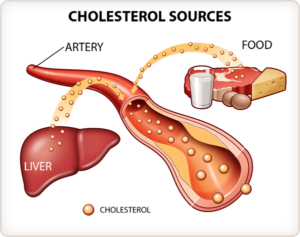 Variant ASGR1 Associated with a Reduced Risk of Coronary Artery Disease Several sequence variants are known to have effects on serum levels of non–highdensity lipoprotein (HDL) cholesterol that alter the risk of coronary artery disease. We sequenced the genomes of 2636 Icelanders and found variants that we then imputed into the genomes of approximately 398,000 Icelanders. We tested for association between these imputed variants and non-HDL cholesterol levels in 119,146 samples. We then performed replication testing in two populations of European descent. We assessed the effects of an implicated loss-of-function variant on the risk of coronary artery disease in 42,524 case patients and 249,414 controls from five European ancestry populations. An augmented set of genomes was screened for additional loss-of-function variants in a target gene. We evaluated the effect of an implicated variant on protein stability. We found a rare noncoding 12-base-pair (bp) deletion (del12) in intron 4 of ASGR1, which encodes a subunit of the asialoglycoprotein receptor, a lectin that plays a role in the homeostasis of circulating glycoproteins. The del12 mutation activates a cryptic splice site, leading to a frameshift mutation and a premature stop codon that renders a truncated protein prone to degradation. Heterozygous carriers of the mutation (1 in 120 persons in our study population) had a lower level of non-HDL cholesterol than noncarriers, a difference of 15.3 mg per deciliter (0.40 mmol per liter) (P=1.0×10−16), and a lower risk of coronary artery disease (by 34%; 95% confidence interval, 21 to 45; P=4.0×10−6). In a larger set of sequenced samples from Icelanders, we found another loss-of-function ASGR1 variant (p.W158X, carried by 1 in 1850 persons) that was also associated with lower levels of non-HDL cholesterol (P=1.8×10−3). CONCLUSIONS ASGR1 haploinsufficiency was associated with reduced levels of non-HDL cholesterol and a reduced risk of coronary artery disease. (n engl j med 374;22June 2, 2016)
Variant ASGR1 Associated with a Reduced Risk of Coronary Artery Disease Several sequence variants are known to have effects on serum levels of non–highdensity lipoprotein (HDL) cholesterol that alter the risk of coronary artery disease. We sequenced the genomes of 2636 Icelanders and found variants that we then imputed into the genomes of approximately 398,000 Icelanders. We tested for association between these imputed variants and non-HDL cholesterol levels in 119,146 samples. We then performed replication testing in two populations of European descent. We assessed the effects of an implicated loss-of-function variant on the risk of coronary artery disease in 42,524 case patients and 249,414 controls from five European ancestry populations. An augmented set of genomes was screened for additional loss-of-function variants in a target gene. We evaluated the effect of an implicated variant on protein stability. We found a rare noncoding 12-base-pair (bp) deletion (del12) in intron 4 of ASGR1, which encodes a subunit of the asialoglycoprotein receptor, a lectin that plays a role in the homeostasis of circulating glycoproteins. The del12 mutation activates a cryptic splice site, leading to a frameshift mutation and a premature stop codon that renders a truncated protein prone to degradation. Heterozygous carriers of the mutation (1 in 120 persons in our study population) had a lower level of non-HDL cholesterol than noncarriers, a difference of 15.3 mg per deciliter (0.40 mmol per liter) (P=1.0×10−16), and a lower risk of coronary artery disease (by 34%; 95% confidence interval, 21 to 45; P=4.0×10−6). In a larger set of sequenced samples from Icelanders, we found another loss-of-function ASGR1 variant (p.W158X, carried by 1 in 1850 persons) that was also associated with lower levels of non-HDL cholesterol (P=1.8×10−3). CONCLUSIONS ASGR1 haploinsufficiency was associated with reduced levels of non-HDL cholesterol and a reduced risk of coronary artery disease. (n engl j med 374;22June 2, 2016)

